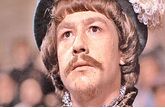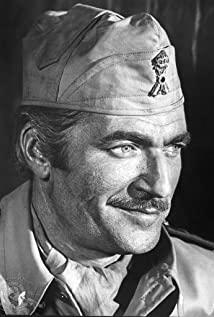Thomas Moore, an English scholar in the 16th century, has a similar life and fate to the Chinese scholars under the authoritarian centralization: loyal to the emperor, but suffering and suffering; dead and axe, but there is a story for the ages . He was condemned for opposing Henry VIII's strengthening of tyranny (his so-called "tyranny"). As a victim of the independent personality of intellectuals, he can be said to have kept his loyalty and history, and a volume of "Utopia" is more than enough to make him a scholar. Identity shines through the annals of history.
Intellectuals are valuable because their identities and thoughts are relatively independent of society, so that they can conduct forward-looking thinking and relatively objective reflections on society. The beliefs held by individuals are the foundation of intellectuals. Naturally, what is indispensable is the persistence of one's own beliefs, even pedantic. Choosing the good and stubborn, defending the justice of the future with a weak body, nine deaths without regrets.
Politics emphasizes authoritarianism. What it needs is obedience and worship, using "laws", "technologies" and "power" to slaughter the world. The strong are pleased to obey. Politics cannot tolerate dissent, he is born intolerant. Because stability and order are the roadbed for policy advancement, no offense and doubt are tolerated. It is necessary to eradicate what should be eradicated and suppress what should be suppressed before dissent becomes an opposition force. On this point, there is also no room for negotiation.
So when politics meets the book business, "How about using the spear of the son to attack the shield of the son?" Destiny is destined. Neither party can make concessions on the basis of setting up their lives, and the reason why politics is politics is that it has real national violence. Generations of scholars fought against the fire with moths, until the red blood stained the whole part. Every inch of the history books, they are ordinary flesh and blood, and they have the same confusion and emptiness of life, enthusiasm and hope for life, what power makes them bravely look directly at the executioner's dreadful knife, with unfinished business and Unlimited regrets, are you willing to give up your life for a zoning principle?
"You like bulldogs, isn't it because they look good? They are born like this.
People are the same. I don't compromise because I don't want to compromise. It's not self-esteem or something, I just don't compromise."
Moore's words are the answer. This is what the scholar-officials call "arrogant." The dignity of a person who cannot be prostitious in the rich, the poor cannot be moved, and the mighty cannot be yielded. At that time, he was charged with clear treason, suffering from grievances and the world’s turmoil, and his relatives and friends refused to understand his stubbornness. The only comfort was the eldest daughter Margaret (this woman was originally the first learned woman in British history). Well-known). Facing the reproach of his friend, the Duke of Norfolk, Moore almost expressed his volcanoes. Just like in the Greek story against the unreasonable laws of the city-state, the girl Antigone who bravely died (the original meaning of this name is "uncompromising") reproduced: "I don't like to love and follow others by nature. Hate." The blood of arrogance and stubbornness has been circulating in the spirit of people with lofty ideals from generation to generation.
"We are born rebels", these seemingly bold and hearty words imply helplessness and bitterness. Are they really motivated for a while, or are they naturally rebellious, fighting hard and perishing? When his daughter was worried that Moore might be misfortune due to violation of the king’s will, Moore confessed that “our instinct is to seek good fortune and avoid evil”, indicating that he has no intention of becoming a martyr, leaving behind his beloved family and unfinished business, and in fact loyal to the king. He was also unable to resolve to openly confront the court. He has made great concessions in order to avoid misfortune: He has been silent on political affairs, and although he disagrees, he will never say anything against it. But the reality was darker and more cruel than he had imagined, so that he couldn't bear it and could only choose to stand in the position of the rebels. The ruler understood the political influence of such a pivotal figure, and understood the potential threats contained in his passive resistance. Henry VIII was not merciful to this beloved courtier on this issue, leaving Moore with no other way but to compromise. . When he clearly stated his opposition to current affairs under irreversible circumstances, what kind of sadness was behind his fearless expression. He was forced to be helpless! The morality requirements of scholars and the individual emotions of mortals tear his heart apart. While choosing to sacrifice for the scholar’s day, he also sacrificed everything that is inseparable-political ideals, beloved kings, academic research, wife Alice and Daughter Margaret, those are also part of his life. Just like when the heroine Antigone was sent to the tomb to be buried alive, she also sang sadly: "I have never heard the wedding song, have never been in a marriage bed, have never enjoyed the happiness of marriage or the happiness of raising children."
Discussing more about the "right way" that Moore insists on, in fact, his ideal of American politics is contrary to the trend of the times to some extent. After experiencing a long period of chaos brought about by the overwhelming power of the monarchy by the church in the Middle Ages, European countries have carried out reforms to strengthen the power of the monarchy. Among them, the radicals carried out religious reforms, directly subjecting their own religious power to imperial power. Such reforms also promoted the later development and growth of early capitalism. In this way, Moore's non-cooperation has turned into a contemptuous trip to Man Arm. A similar situation occurred in ancient China at the turn of the Shang and Zhou Dynasties. Two hermits named Boyi and Shuqi accused the Wu Wang who had sent troops to war against the king of war. They refused to eat and died on a hunger strike. It is really foolish and ridiculous to measure these two people with the values of historical winners and losers. But just as Boyi and Shuqi became the spiritual models of later Chinese scholar-bureaucrats, Thomas Moore is also an unstoppable monument in the history of Western culture. They acted as models of Qingzheng morality in their respective cultures, inspiring generations of later generations of literati. While cleverly holding the article, he shoulders moral responsibility.
What a gratifying phenomenon, it shattered the historical utilitarian comment and the cynicism of the deconstructive morality of the popular market, so that every generation of people of insight struggling in the turbid world can still feel inspired and excited. Yes, Gao Jue showed a wide variety of those who were supporting themselves in the historical torrents and ups and downs at that time. However, the “prior to the times” of that year has long become obsolete after hundreds of years of vicissitudes, and the “progress” on which one’s self-sustainedness was back then has long been a dead end, leaving only a proper evaluation in a sentence in the history books. Following in the footsteps of history, but in the end ironically left behind by history itself. Only those who have their own certain rules and are not moved by the noise around them can truly arouse deep and lasting touch in the hearts of generations with their independent personality, and thus immortal in the true sense.
History should be the history of people, not the history of dynasties or empires.
Thomas Moore, as a humanitarian, would sincerely agree with this sentence, right?
The tragedy is moving because the things that are destroyed are so beautiful. The film strives to show us a perfect personal accomplishment: he is well-educated, knowledgeable, quick-thinking, and eloquent; he is loyal to officials, honest and upright; he is elegant and kind, making people feel like a spring breeze. Many details in the film are even more generous to exaggerate his virtues: I see butler Matthew's villainous behavior, but he has always been evil, even if Matthew has betrayed him, he is willing to repay his understanding and tolerance; remarks After the official dismissed his servants, Moore promised to re-arrange jobs for everyone before dismissing them. When his wife reminded him that it would be difficult to arrange for everyone, Moll still insisted that he "will find it" and tried his best to be convenient with others; he was accused. On the night he met his friend, the Duke of Norfolk, Moore, who had always been mild, deliberately ruined his friend, so that Norfolk broke off with him in anger. None of us in front of the screen could understand that Moore wanted Norfolk to be with himself. To draw a clear line so as not to cause trouble to the upper body? Sima Qian once described the idler who has both virtue and deeds but has a miserable destiny: "Or choose a place to do it, then speak sometimes, cannot help it, injustice is not angry, and those who encounter disasters are innumerable! I am confused! . Huan's so-called heaven is evil or evil?" This is the portrayal of Moore! While the viewers were deeply moved and admired for the nobleness created by the film, they couldn't help but express the same lament as Tai Shigong: the sage suffers, the good ministers die, where does the way of heaven exist?
However, lamentation is our lamentation. For the parties concerned, what they can do in the face of tragic fate is to do their best to maintain human dignity and nobility, which is to accept the cruelty of fate calmly.
"If in our country, common sense brings happiness, then people are saints. However, in reality, greed, anger, pride, and stupidity are easier than charity, humility, justice, and deliberation. Maybe we should stand firm, even though we might become heroes (martyrs)." Moore comforted Margaret, who was in communion with his sobbing daughter. A gentleman is poor, he knows his fate, faces injustice and absurdity, can calmly work hard to understand, understand his pursuit and never waver, is he not a gentleman?
Looking back at this movie, the most impressive passage is that in the second half of the movie, Moore has been accused of being in a state of shame, friends rejected, and the boatmen refused to ride this "suspect." When Moore stumbled back to her residence, Chelsea, against the cold midnight wind, Margaret, who had been waiting for a long time, rushed to meet him. The dead branches of the tree branches looked like ghosts in the dim light before dawn, and the bodies of the father and daughter huddled in the cold wind looked so fragile and small. Margaret brought more chilling news than the cold wind: the king gave an ultimatum, and the whole people must swear to obey the reformation doctrine. Moore who opposes leaving the Roman church is undoubtedly unacceptable, which means a capital crime. Under the embarrassing situation, what shocked me was the steadfast and composed faces of the two of them, like knights who had been in battle for a long time. I like the artistic conception of this period, full of oriental connotative and deep temperament, the wind and rain are like gloom, the cock crows endlessly, the violent shaking of the leaves and the clothes, highlighting the situation is not allowed, but the father and daughter support each other, courage and courage to overcome difficulties together, But the gloomy surroundings dimmed and faded from the brilliance of human nature. At that moment, I felt the same sincere grief as Margaret. I thought of Moral’s gentle smile, of his wise conversation, his deep passion for religion, and his concern and love for family and friends. The firmness of "sucking down the heart and suppressing the will", his calmness that "there has always been death since ancient times". In the end, he was obliterated in this faint world, because of his gentleman's integrity that does not fear the mighty, and because of his uncompromising control of his heart and refusal to go with the flow. This is the scholar, the one who chooses the good and is stubborn. He refuses to swear to obey the viewpoints he does not agree with, just because he firmly believes in his own viewpoints and insists on never deviating from it, even if he goes through fire and water. "I hold dear to my heart that, although nine dead never regretted it."
Universally cloudy, clear Senai see. In that turbulent era of change, the turbulent power struggle made people at a loss what to do. In the first sixty years of the sixteenth century, Britain became a monarch even more and experienced four changes from Catholicism and state religion. The British are constantly required to swear oaths to different religious laws, and constantly face different religious rituals, "familiar patterns fade, familiar solutions fail, and familiar options disappear." Declared: "I have a rock in my heart, and I can't turn it."
View more about A Man for All Seasons reviews











